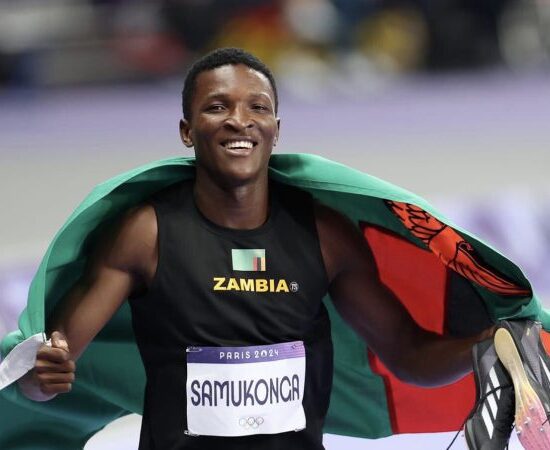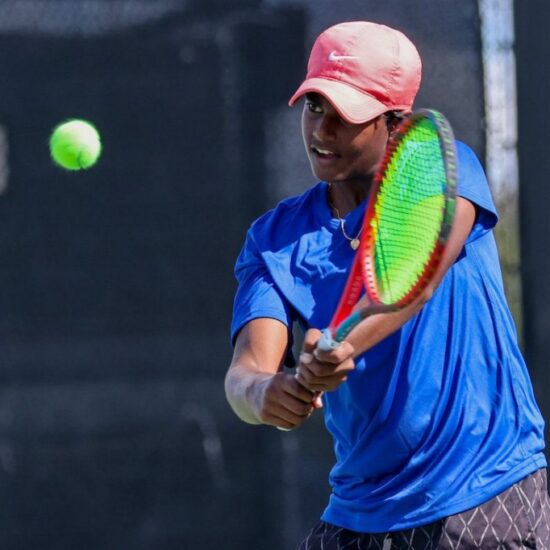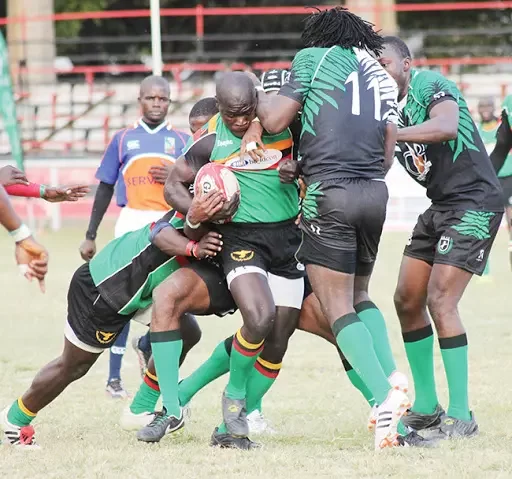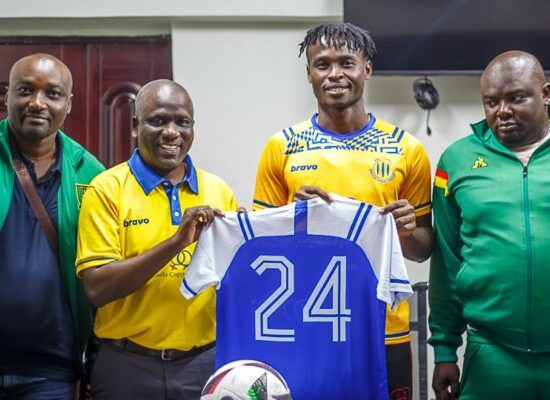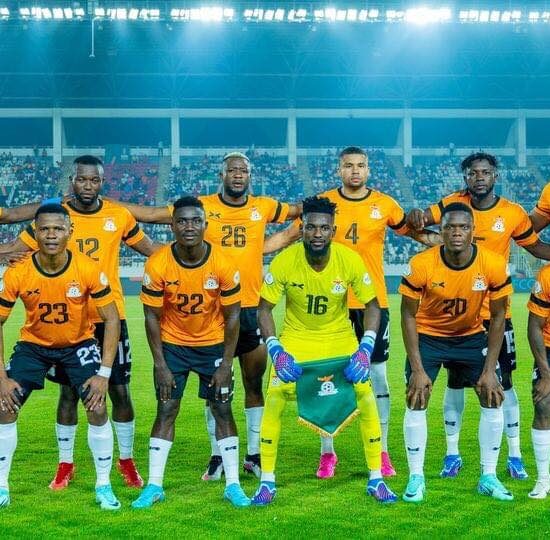As a developing nation, with serious economic and social troubles even after changing seven (7) head of state, Zambia should by now start giving meritocracy a chance. Muzala has earned his stripes and his views ought to be respected as he knows the troubles he had to go through to wrestle only a third medal for Zambia.

With due respect for positions of appointment such as minister, some which are elective such as sports association presidents or Secretary General etc. sports personalities like Kalusha Bwalya, Chris Katongo & his winning team, Samuel Matete, Keith Mwila and now Muzala Samukonga have earned the right to tell it as it is, and help the nation develop.
They are well aware of the challenges they have encountered to go against the local odds and get the Africa wide and global honors and recognition. When you analyse the points that Muzala Samukonga has raised on allowances and sports management, the only credible thing to do is listen and implement reforms rather than become defensive.
Most of the people in Zambia holding positions through appointment or some kind of local elections views should not stiffle or mute the voices of the heroes who understand what it takes. No one appointed Kalu to great football prominence, same with Samukonga, no one appointed him nor did he have to win some local elections.He earned his stripes and the whole world watched what he did.

Muzala Samukonga whether you like or not is now the pride of Zambian athletics and a symbol of national hope, who now finds himself at the center of a storm that threatens not only his future but the very fabric of Zambian sports administration. The Olympic bronze medalist, who etched his name alongside the legendary sprinter Samuel Matete & Boxer Keith Mwila as one of Zambia’s three (3) Olympic medalists, has taken a bold stand against what he describes as “a betrayal of trust” by the very institution meant to support him.
A Hero’s Plight
On 23 August 2024, the Ministry of Sports, led by Minister Elvis Nkandu, announced with confidence that “all outstanding allowances have been paid to our athletes, with only winning bonuses remaining unsettled.” This statement was quickly picked up and amplified by social media influencers, eager to reassure the public that all was well in Zambian sports.
But within hours, Samukonga shattered that illusion. “We have not received any allowances as claimed by the Ministry. This is a grave concern for us as athletes,” Samukonga declared in a rare, emotionally charged statement. “These funds are critical for our training, our livelihoods, and our ability to represent Zambia with honor. The Ministry’s statement is simply not true.”
A Troubling Pattern
Samukonga’s outcry has brought to light a recurring issue that has plagued Zambian sports for years. The nation’s sports administration has a history of failing to deliver on its promises to its athletes, a pattern that stretches back more than a decade.
In the wake of Zambia’s historic victory at the 2012 Africa Cup of Nations in Ivory Coast, members of the national football team, including then-captain Christopher Katongo, publicly voiced their frustrations over unpaid bonuses. Despite promises from the government and football authorities, years went by without the players receiving their due rewards. “We brought glory to Zambia, but we were left to struggle,” Katongo lamented in 2016, expressing the disillusionment that many Zambian athletes feel.
This history of neglect is not lost on Samukonga, who now finds himself in a similar predicament.

“These allowances are not just numbers on a ledger,” Samukonga emphasized. “They are the fuel that drives our dreams. Without them, how can we be expected to perform at our best?”
A System in Disarray that lacks meritocracy
The issues raised by Samukonga are not new. For years, there have been murmurs of discontent among Zambia’s athletes about the lack of support and the inefficiencies plaguing sports management. But this time, it seems the simmering discontent has reached a boiling point.
“It is increasingly clear that the current sports administration lacks the expertise and understanding necessary to manage the complex needs of our athletes,” said a senior sports analyst, who asked to remain anonymous. “The Ministry is out of touch with the realities on the ground, and the consequences are dire.”
The analyst’s views are echoed by many within Zambia’s sporting circles, who argue that the administration’s lack of foresight and experience is costing the country dearly. Samukonga’s ordeal is seen as symptomatic of a system in crisis.
“This is not just about unpaid allowances,” the analyst continued. “It’s about a deeper, systemic failure that is putting our athletes’ careers – and our nation’s sporting future – in jeopardy.” And this is not only for Athletics, but all the other sports that fail to mint meddles.

THE CONSEQUENCES OF INACTION
The impact of this mismanagement is already being felt. Samukonga, who was poised to lead Zambia’s charge at the Paris 2024 Olympics, is reportedly reconsidering his future with the national team. Sources close to the athlete have indicated that he may no longer be willing to represent Zambia if the situation is not resolved.
“The situation is untenable,” said one of Samukonga’s close associates. “Muzala is a patriot, but he cannot continue like this. He has given everything for his country, and this is how he is treated? It’s disgraceful.”
If Samukonga were to step away from representing Zambia, it would be a devastating blow to the nation’s sporting ambitions. His departure would not only rob Zambia of one of its brightest stars but also send a chilling message to other athletes about the risks of dedicating their careers to a system that appears to be crumbling.
A CALL FOR URGENT REFORM
As the scandal unfolds, there are growing calls for the Zambian government to take swift action. Sports management experts are urging the Ministry to overhaul its approach, bringing in professionals with a genuine understanding of sports and a commitment to athlete welfare.

“The government must act now,” said the sports analyst. “We cannot afford to lose athletes like Samukonga. The time for platitudes and empty promises is over. What we need is real change – and we need it urgently.”
As the dust settles on this controversy, one thing is clear: Muzala Samukonga’s fight is not just for himself, but for the future of Zambian sports. Whether the nation’s leaders will rise to the challenge remains to be seen. ZBT had spoken to Samuel Matete after the Samukonga Bronze, and he echoed that the issues raised have been there and reforms to change are always thwarted.
A NATION HOLDS ITS BREATH
For now, Zambia waits. Will the government heed the call of its athletes? Will Samukonga return to the track to represent Zambia, or will he become the latest in a line of disillusioned sports stars like Fashion Sakala in football who broke rank and called out the corruption happening in football? The answers to these questions will shape the future of sports in Zambia for years to come.


